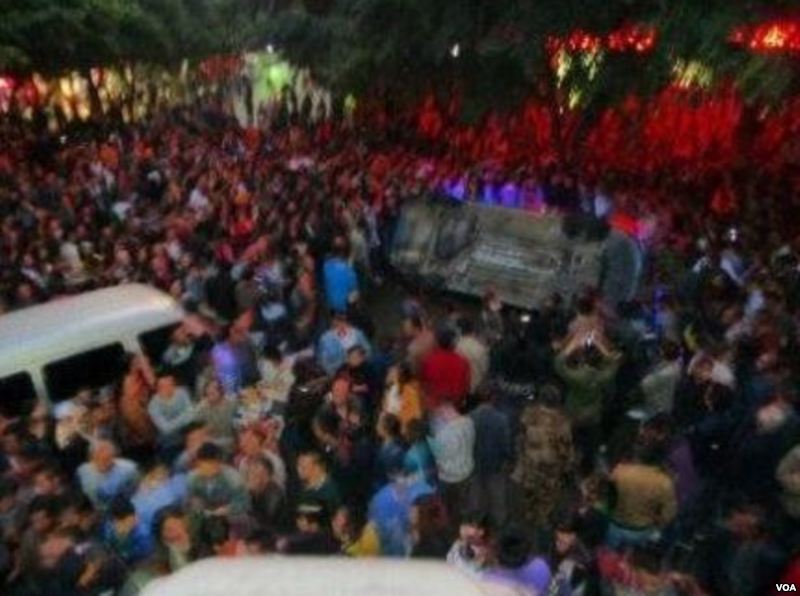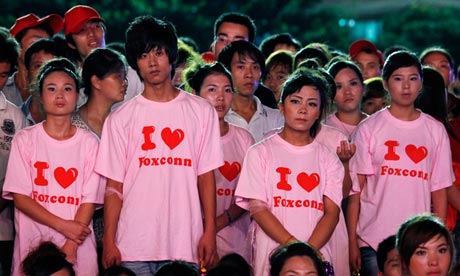By Irving Feng
Impunity Watch Reporter, Asia
BEIJING, China – Local protests erupted in the Chinese city of Luzhou after a truck driver was allegedly beaten to death by police officers over an unknown dispute.

Luzhou, a major city situated in the southwestern Sichuan province, experienced violent riots that lasted well into Wednesday night. Bystanders took pictures and video footage of unruly mobs throwing rocks, bottles, and other objects at police forces. Several police patrol vehicles had also been overturned and set on fire.
Amateur photographs and videos of the scene where the truck driver had died went viral on the Chinese “microblogging” site, “Sina Weibo.” The photos and videos allegedly show the dead truck driver sprawled out on the ground as police tried to keep the smoldering crowd back and under control. Local bloggers conveyed that the crowd around the scene swarmed the body of the dead truck driver and attempted to protect the corpse from being removed by the local authorities.
A Sichuan province official issued a statement saying the truck driver had died of a disease when traffic police asked the truck driver to stop blocking traffic and move his vehicle away from the middle of the road. The official attempted to disperse the crowd by telling the protestors that the truck driver died of an illness and had, in fact, not been beaten to death by the traffic police.
Police reinforcements were brought in to contain the violent outburst by the protesting crowd. Reports of arrests and police reinforcements using tear gas on protestors exploded on the internet. Onlookers posted photographs, videos and blog post regarding the police brutality and retaliation against the protestors.
The violent riots over the dead truck driver in Luzhou, Sichuan province, comes during a period of political uncertainty in China. The Communist Party meets next month in Beijing to install a new generation of central government leaders.
There were roughly 80,000 incidents of riots, protests, and other eruptions of unrest in the general population in 2007. Experts estimate that in 2009, the number of violent eruptions of unrest had risen to 90,000 incidents. Others estimate that the number may be even higher.
The Chinese Communist Party is in disarray and worries that the thousands of protests may soon transform into a national movement that may threaten the party’s iron grip over the country and the people. The number of demonstrations and protests have risen in opposition of the Communist Party’s corruption, land grabs, abuse of power, and economic transgressions.
For further information, please see:
People’s Daily Online – Cops blamed for death as crowds riot – 18 October 2012
China Digital Times – Residents Take to Streets After Man Reported Killed – 17 October 2012
Offbeat China – Violent unrest in Luzhou, Sichuan, after traffic police beat driver to death. Censors already at work. – 17 October 2012
Reuters – Chinese residents take to streets after man reported killed – 17 October 2012
